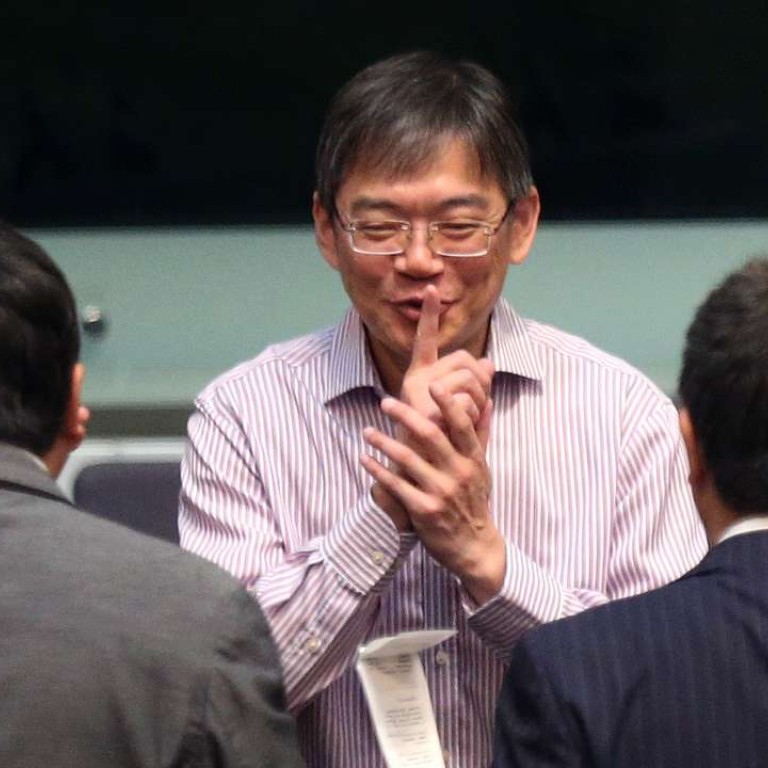
Hong Kong patients’ rights group sets terms over renewed bid to reform doctors’ watchdog
Association says it will boycott any talks if the former lawmaker blamed for failure of bill in Legco is allowed to take part
A patients’ rights group has laid down terms for a discussion panel the government has promised in a bid to resolve tensions over reform of the city’s doctors’ watchdog.
The proposal to revamp the Medical Council has been the subject of impassioned disputes between medical representatives and a patients’ group.
A previous government reform bill for the watchdog failed in the Legislative Council in August amid strong opposition from doctors.
Following the bill’s collapse, the government said it would broker discussions between stakeholders to create a better revamp proposal, which aims to speed up the council’s efficiency in handling public complaints and disciplinary hearings.
The panel is expected to consist of 15 to 30 members including patients, doctors, as well as representatives from Legco. It is likely to be formed by the end of next month after new lawmakers have been sworn in.
However, Patients’ Rights Association spokesman Tim Pang Hung-cheong has indicated the association will boycott discussions if the outgoing lawmaker for the medical sector, Dr Leung Ka-lau, is on board.
Leung’s filibustering in the Legislative Council is perceived to have delayed a vote to the point where the bill was shelved.
“Dr Leung seriously damaged the feelings of the patients when he insisted on dragging down the reform bill,” Pang said. “I am afraid we would have no choice but to consider boycotting the discussion if Leung is included in it.”

Pang said the group would accept the participation of Leung’s successor, Dr Pierre Chan, former president of the Public Doctors’ Association, and lawmaker-elect Kwok Ka-ki from the Civic Party – both of whom are considered to be less divisive figures.
Meanwhile, the ranks of the city’s doctors are also riven with disputes. It is understood that several disagreements broke out in closed-door meetings of the Medical Council over the summer.
In the first meeting in August after the collapse of the bill, a group of 10 members raised a motion requesting the government to increase resources – including adding manpower to the council’s secretariat to speed up processing of public complaints.
Two similar motions were raised by other members in a second meeting, with several members challenging the legitimacy of the first motion on the grounds that it was a procedural requirement for each motion to be raised by only one member.
Each group claimed to have sought legal advice in favour of their views.
Pang, who did not attend the meetings, said the disputes were trivial and accused certain council members of “simply stirring up trouble to deter a proper discussion on reform”.
“The patients have been waiting for reform for a long time and these kind of disputes have dampened their hopes for change,” he said.
“I urge the doctors to put aside their self-interest and differences and show the public that they are sincere in putting patients’ rights first.”
The government has proposed adding four appointed lay members to the council, making a total of eight, expanding the council from 28 to 32 people. Two appointed seats would be changed into elected positions – to be voted by the 26 board members from the Academy of Medicine training school.

